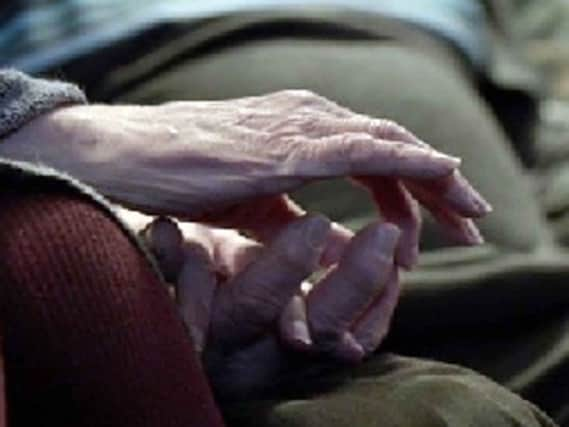Liverpool Care Pathway deaths to be phased out


The Liverpool Care Pathway – already axed in England – recommends that in some circumstances doctors withdraw treatment, food and water from sedated patients.
The Scottish Government announced the decision yesterday based on recommendations from the Living and Dying Well National Advisory Group.
Advertisement
Hide AdAdvertisement
Hide AdIt followed a review which concluded in July that, in the wrong hands, the pathway was used “as an excuse for poor-quality care”. Members of the panel were “shocked” and “upset” by some of the cases, such as instances which saw nurses shouting at relatives for attempting to give water to patients.
Nursing staff in many cases wrongly believed no fluids at all were allowed, the review in England found. Families were often not told a relative had been put on the pathway, it said.The measures were devised in the 1990s at the Royal Liverpool University Hospital and Liverpool’s Marie Curie Hospice and aimed to prevent the unnecessary prolonging of life for those in severe pain or with no prospect of recovery.
The LCP was intended to deliver standard best practice, but critics said it became inflexible.
New interim guidance for Scotland from health officials to hospitals and hospices now states: no single doctor or nurse can put a patient on the “end of life system”; families must be kept informed at all times; staff must have better training about giving fluids to patients.
Health officials in England said patients should now get “personalised” care plans.
Dr Jean Turner, of the Scotland Patients’ Association, said: “The Liverpool Care Pathway is perfectly appropriate for cases where somebody is reaching the end of their life, can no longer be kept comfortable and has no prospect of recovery.
“The tragedy in England was that, in many cases, staff were using it without understanding what they were doing and it caused a great deal of grief for families.
“We had a call from someone in Northern Ireland who had not been told their relative was being placed on it. In another case here in Scotland, it took the patient 11 days to pass, which was clearly distressing.”
Advertisement
Hide AdAdvertisement
Hide AdSister Rita Dawson, chief executive of St Margaret’s Hospice in West Dunbartonshire, which holds one of the highest inspection ratings in the UK, told The Scotsman: “When you deal with very ill patients, we use multidisciplinary reviews, several staff taking decisions about patients together with relatives, meeting several times per day.
“That was the big failure we’ve seen in England. You get staff under pressure, a single person making a decision about someone’s life – no one person should ever make such a decision.”
Health secretary Alex Neil said: “The expert group has recommended phasing out the LCP and setting up a new group to develop an alternative. In the meantime, strong interim guidance will be put in place.”